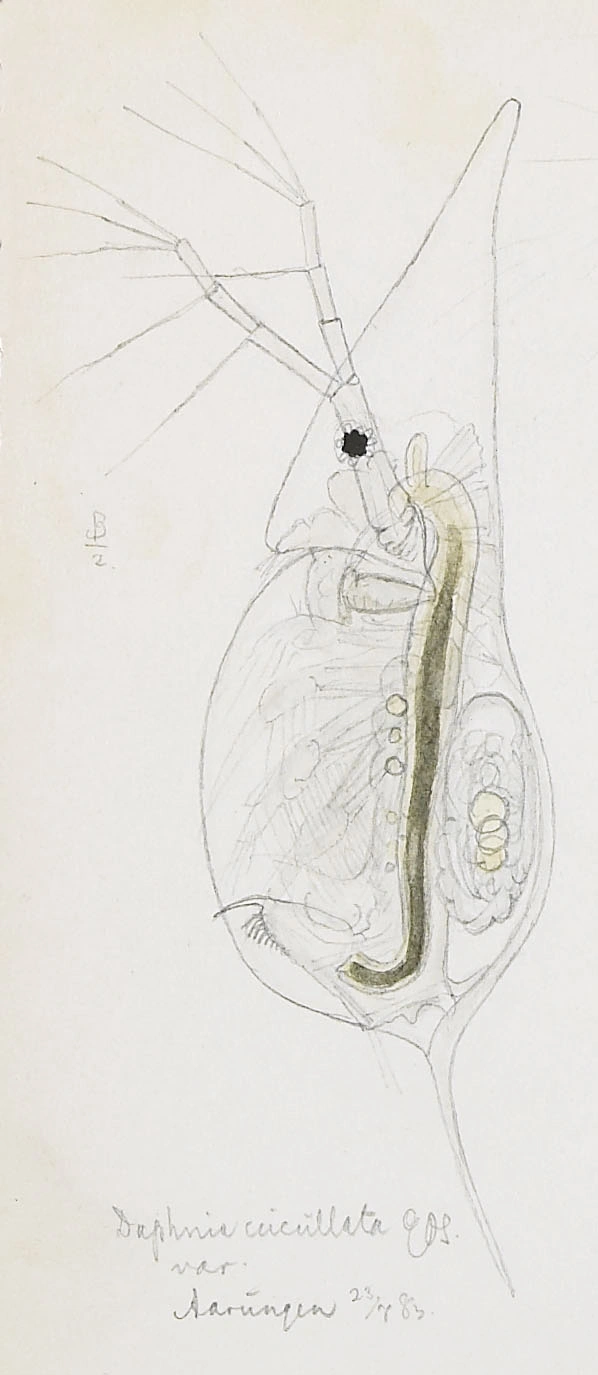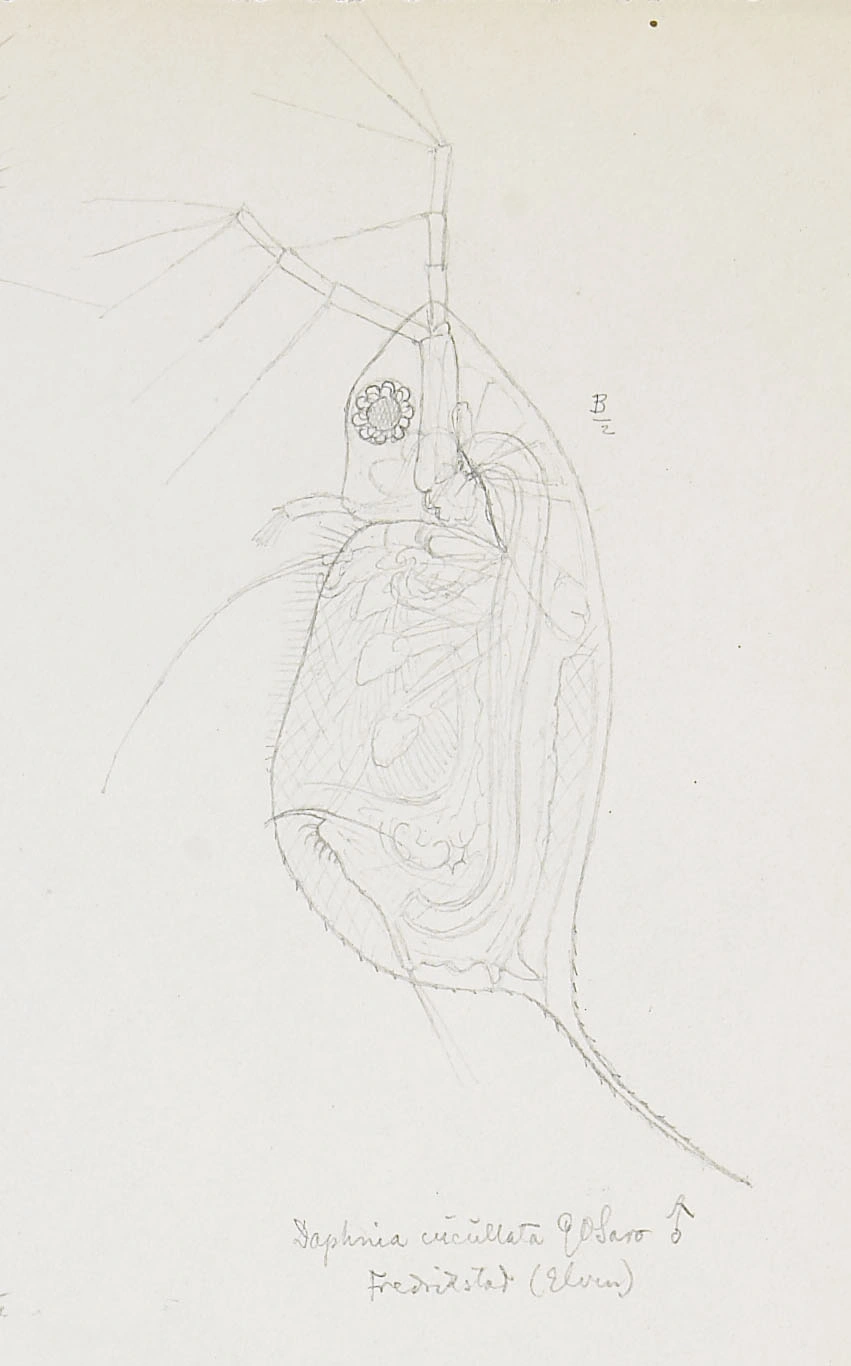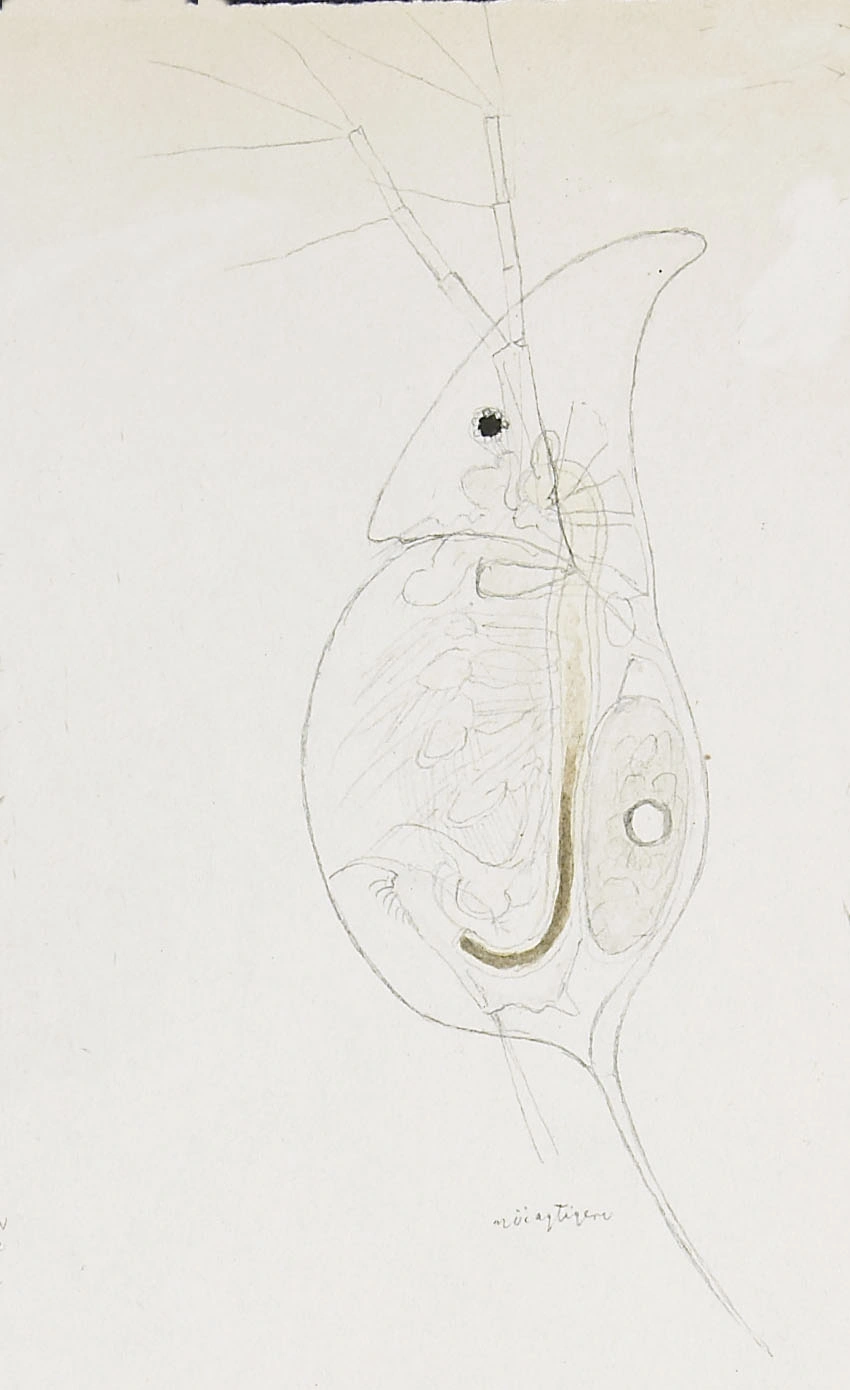Daphnia cucullata
Daphnia cucullata is characterised by a head with no eyespot, which forms an extraordinarily strongly protruding part that ends up in a sharp, somewhat dorsally curved point. It most commonly occurs in nutrient rich lakes with high densities of fish.
Key characteristics
Daphnia cucullata (female)
Daphnia cucullata (male)
Though it may vary in size, Daphnia cucullata is the smallest daphniid species, even smaller than D. cristata. It is characterised by a head which forms an extraordinarily strongly protruding part that ends up in a sharp, somewhat dorsally curved point. It has no eyespot (oscellus). In both D. cucullata and D. cristata the sensory bristles are the only visible part of the first pair of antennae. However D. cucullata does not miss the setae on the first joint of the three-segmented-branch of the second pair of antennae as in D. cristata. Morphologically this is the best criteria to use to distinguish D. cucullata from D. cristata. The species is more or less transparent.
Female: Length 0.6–1.7 mm
Male: Length 0.6–1.0 mm
Ecology and distribution
D. cucullata is found in about 3 % of the localities where plankton is sampled. It is distributed in two main areas, Jæren in the south west and in the Oslofjord area. D. cucullata is a typical lowland species, only once found above 300 m a.s.l. It most commonly occurs in nutrient rich lakes (conductivity>10 mS/m) with high densities of fish. It is never found when pH<6.
| Vitenskapelig navn | < 4,5 | 4,5 - 4,9 | 5,0 - 5,4 | 5,5 - 5,9 | 6,0 - 6,4 | 6,5 - 7,0 | 7,0 - 7,4 | > 7,5 |
|---|---|---|---|---|---|---|---|---|
| 0 | 0 | 0 | 0,7 | 2,2 | 4,1 | 3,3 | 10,1 |
| Vitenskapelig navn | < 1,0 | 1,0 - 1,4 | 1,5 - 1,9 | 2,0 - 2,9 | 3,0 - 3,9 | 4,0 - 4,9 | 5,0 - 6,9 | 7,0 - 9,9 | > 10,0 |
|---|---|---|---|---|---|---|---|---|---|
| 0 | 0 | 0 | 0,8 | 0,6 | 0 | 3,2 | 2,5 | 9,8 |
| Vitenskapelig navn | < 0,01 | 0,01 - 0,09 | 0,1 - 0,9 | 1,0 - 9,9 | 10,0 - 99 | 100 - 999 | > 1000 |
|---|---|---|---|---|---|---|---|
| 0 | 0 | 0,5 | 1,4 | 3,5 | 4,8 | 5,8 |
| Vitenskapelig navn | < 100 | 100-299 | 300-499 | 500-699 | 700-999 | >1000 |
|---|---|---|---|---|---|---|
| 6,1 | 5,7 | 0 | 0 | 0 | 0 |
Look-alikes
Daphnia cristata


